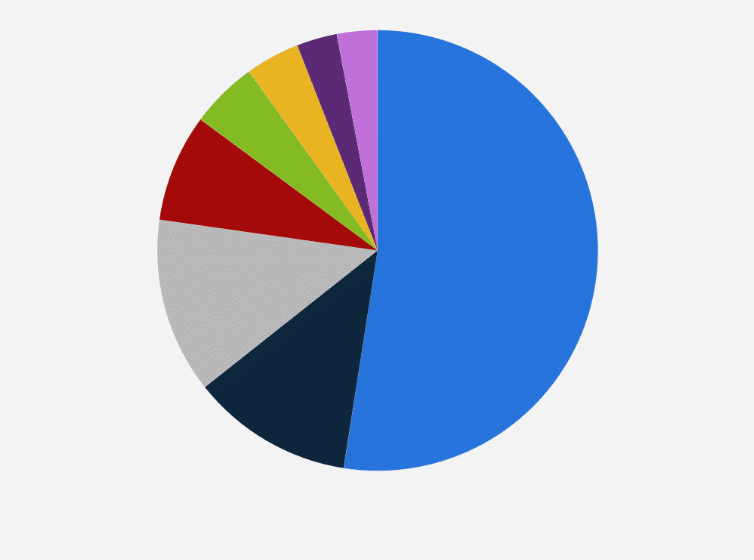From inception, one of the main focuses or objectives of a business is to make as much profit as possible, gain market share, and also be a leading player in the industry. Businesses have incorporated expansionary measures in their “strategic planning” and also made achievable projections towards gaining as much ground and becoming a market player.
Realistically gaining market share could be one of the most demanding or rather upheaval tasks especially for new and emerging businesses. In business studies, we have come to learn that as a business entity, you either create a new product for a new market, a new product for an existing market, a new market for an existing product, or a market for a new product. We will consider these further in the article.
In an open market economy, where there is free entry and exit, or a highly competitive market, gaining market share has become a little more painstaking, both in relation to consumer behavior and prevalent economic situations.
Gaining market share involves a number of factors, which could include; pricing policy, sales and promotions, advertising and marketing, customer loyalty, product branding and packaging, economies of scale, economic or governmental policies.
Before launching a new product into an existing or new market, research and development must have been carried out, a feasibility study done to show if the product will survive the market and an entire study of the product life cycle. It should be also monitored how a new product can thrive in the market and for how long.
Having considered all of that we need to look at what can actually help a product gain market share and sustainability.
Some of the factors that can influence the market share of a product would include the following:
1. PRICE
Pricing is key to any business, it can be seen as the life wire of a product, the pricing makes or mars the survival of the product. In fixing prices the business must be sensitive to the environment it operates if it’s a monopolistic market it can choose to set whatever price it wants, but in an open market, prices are controlled by the forces of Demand and Supply, and as such most businesses are price takers rather than price givers. Also in an open market, the setting of prices can be influenced by the cost incurred during production, but since they’re not allowed to fix whatever price they choose, they tend to reduce cost while trying to keep up with the benchmark in “Quality” offered.
Pricing plays a pivotal role in the survival of a product and it’s longevity on the market. Business owners should try as much as not, to cut the cost to the point where they begin to compromise quality, but rather follow through on operations of major players in the industry so as to gain a reasonable level of comparative advantage. Methods such as “Break down analysis” and “Value Re-engineering” could help in achieving this feat. For the introduction of new products, pricing method such as PRICE PENETRATION, where lower prices are charged compared to the similar product from another manufacturer, can be used at the initial stage of introduction to gain a reasonable market share before adjusting to the regulatory price of the product in the market.
2. MARKETING, SALES AND PROMOTION
Having manufactured a product, it must be sold so as to generate revenue and continue the production process. Also, a market must have been created for the product or should be sold in the existing market.
The knowledge of the product must be conveyed to the target consumer and this can be done by promotion. Promotions aren’t just about creating awareness about the product, it also includes giving the customer sales incentives such as discounts, after-sales service, souvenirs, sponsorship, sales campaign, etc.
Advertising is also a part of a promotion, information about the product is passed to the consumers. Thereby distracting them from the other products. Advertisements could be informative, persuasive, etc, depending on the goal of the information.
Popular means of advertising include; fliers, radio jingles, TV commercials, billboards, posters, souvenirs, etc. This allows a product to gain footing in the market.
3. BRANDING AND PACKAGING
Branding is giving a product identity or reputation in the market. Some products don’t sell just because of the need it satisfies but because of the brand backing such a product. Some companies have built BRANDS over the years and have become the priceless jewel of their industry. So whatever product such brands produce to be sold in the market gets very high patronage. So building a “brand” should be utmost in the minds of any business person. Brands could be in form of trademarks, differentiated designs, and the likes. It helps your product to stand out.
The packaging is as good as branding, but packaging deals mostly with the outlook and attractiveness of the product. How well a product is packaged could determine, how much a consumer will be willing to pay for it.
4. ECONOMIES OF SCALE
As a company or business grows it begins to take advantage of its growth and expansion in the sense that. It can acquire raw materials at a relatively low price and with other incentives. Which in the long run affect the unit price of the product. It could easily charge a Lower price compared to those of its competitors. Also, the firm could have a very standard production setup, which reduces all the bottlenecks in production. Enables it to deliver at cheaper prices, better quality, and in record time to its customers. They can reduce the price without compromising the quality of the product.
5. MERGER AND ACQUISITION
Another way by which a product can gain market share is through mergers and acquisitions. Two firms producing similar products or carrying out similar activities may choose to merge into a single. But larger firm thereby brings both customers under the same brand which in the long run increases the market share of products produced by that firm. In the same vein, a bigger firm might seek significant or controlling interest in a smaller firm. Acquiring its assets in part or in whole. Such action brings expansion and also affects the market where they operate. They have a wider range of products and services, customer network base, and overall profitability.
6. GOVERNMENT OR ECONOMIC POLICIES
Finally, in some countries especially those with socialist economies, the government has a way of influencing the market situation. They may choose to give preference to certain kinds of goods especially those produced locally, they can also ban some products, giving their competitors an edge. More so the government could give incentives like subsidies, tax breaks, patent rights, or use prices to favor certain products giving such a comparative advantage over the other. Firms can take advantage of this opportunity to improve their activities and increase their market share.
How Does One Get Market Share?
Divide the entire sales revenue for your company for the selected time period by the same period’s total sales revenue for your industry. To determine your market share percentage, multiply this value by 100.
Why Is Expanding Market Share Important?
More specifically, a company’s profit margin, purchases-to-sales ratio, marketing costs as a percentage of sales, product quality, and selling price are all likely to improve as its market share grows.
Why Is Market Share Crucial?
Executives are able to assess overall market growth or decrease, detect important trends in consumer behavior, and understand their market potential and market opportunity because market share is a crucial indicator of market competitiveness.
What Are the Key Components of the Stock Market?
The Price to Earnings Ratio (P/E ratio) and Price to Sales Ratio are two simple techniques that can be used to determine whether the market value of a stock is consistent with the company’s growth tendencies.
What Exactly Is a Large Market Share?
A larger market share typically translates into better sales, less work to sell more, and a high barrier to entrance for rival businesses. A leader will benefit more than the others if the market grows if they have a larger market share.
Conclusion
In conclusion, it is very important for any business that chooses to succeed as a going concern to pay great attention to increasing its market share. It should incorporate it into its corporate strategic plan and set objectives to be achieved. Market share improves overall profitability and also gives the business a comparative advantage over other firms.






